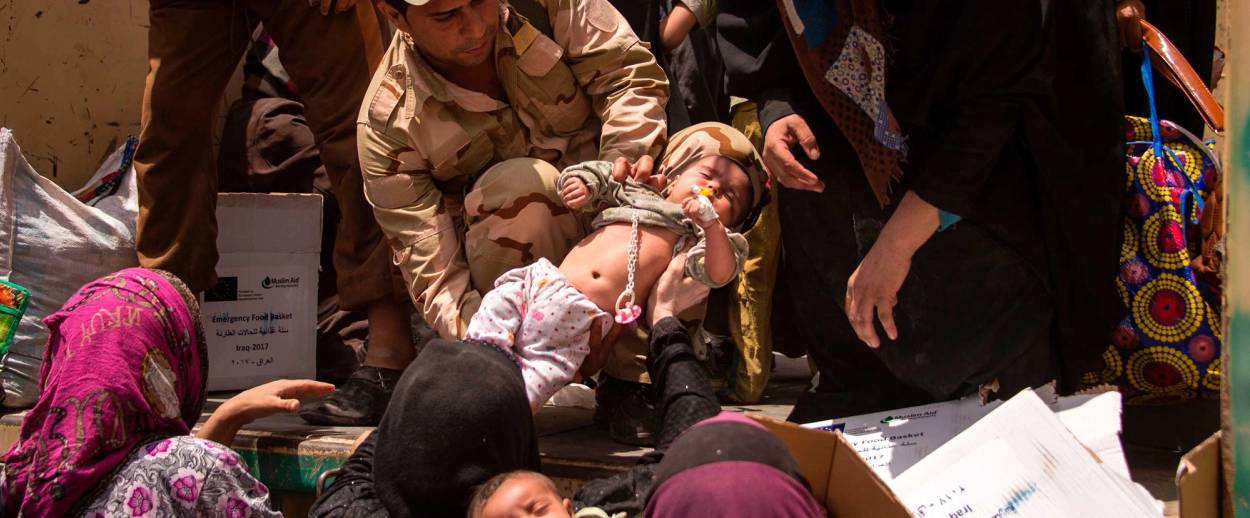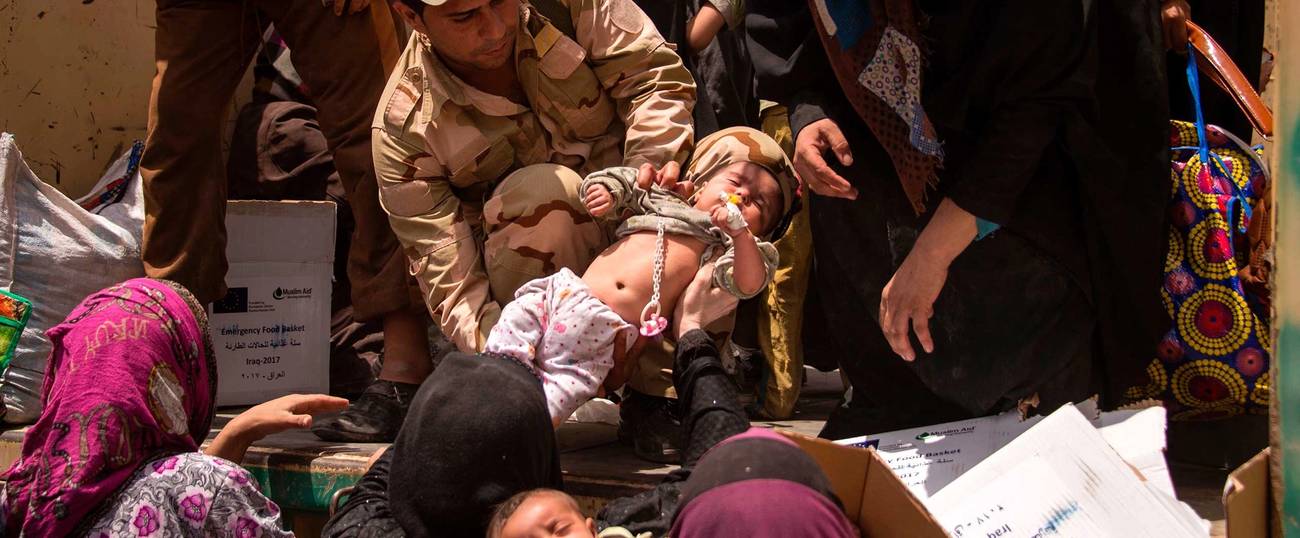Mosul Is Liberated—But Not Yet Free
Who will rebuild the destroyed Iraqi city? Who will shepherd the refugees to safety? Who will reward the Kurds with the regionally stabilizing state they deserve?




There are joyous liberations. Of Paris in 1944, for example—a liberation insurrectionary and exultant. And then there are leaden liberations: Warsaw’s in 1944; Berlin’s in 1945; and, more recently, Sarajevo’s.
The liberation of Mosul obviously falls into the second category.
There is a sense of relief, of course. There is, too, the elation of victory—and, for someone who experienced some of the most terrible phases of the battle from the inside, there is intense emotion.
But, seeing the images of survivors emerging from the city, their faces frightened and drawn from eight months in hell; viewing the field of ruin to which one of the oldest cities in the world has been reduced; reckoning up the numbers of those killed, those displaced, people from whom the Islamic State took everything while losing this war, it is hard not to feel great dismay.
Was it really necessary, first of all, to wait three years before deciding to act? Before launching the assault, did we have to give the enemy time to fortify its positions, to acquire sophisticated weapons, to irrigate terrorist networks abroad, to slaughter and then slaughter some more? When the evidence of horror was as manifest as it was in Mosul, could we not have taken the initiative and killed the serpent’s egg, as Ingmar Bergman urges in one of his finest films?
And what of the “Day After”? Will the coalition decide that its job is done now that it has finally managed to overcome, with its vast forces, a few thousand badly disciplined fighters who were strong only because of our weaknesses (notably our temporizing)? And will we, once more, brag “Mission Accomplished” as the stragglers from the ragtag Islamist force fall back to Hawija, Tal Afar, Raqqa … or Paris?
What fate will the victors reserve for the million Mosul residents, so many of whom viewed the Islamic State favorably before quickly becoming disenchanted? Will the victors treat those who remained—or who fled very late in the game—as collaborators, or will they see them instead as hostages? Is it possible that we may fail to realize that the behavior of the liberators—whether magnanimous or inspired by revenge—will determine the future face of a city that, with a little work, could be turned into a laboratory of peace and reconciliation?
Who will lend themselves to that work of reconstruction, work that if done right will be a second liberation? Iraq? A state that has been in a state of chronic chaos since the fall of Saddam Hussein? Iraq alone, a state governed by Shiites, whose hate for the Sunni majority of Mosul’s population is an open secret?
Instead, might we not imagine, given the high stakes, that the city should come temporarily under international administration? Why not—confronted with this blank slate on which no schools, hospitals, repositories of memory, or social forums remain standing—entrust reconstruction to a pool of donor nations, global institutions, and sovereign funds, Arab and non-Arab? Is it not geopolitically critical that the former Nineveh should become again the cosmopolitan city that it has been since humans began living in cities?
And one last question: the Kurds. It was the Kurdish peshmerga that, in October and November 2016, opened Mosul’s gates for the Iraqis. It is they who, for two long years, held fast (as England alone resisted the Nazis until well into 1941) while the Iraqi army recovered from the rout of August 2014; it is they who held a front line 1,000 kilometers long before ultimately repelling the Islamic State. Fighters, they were, from the very start, sentinels of a free world that everywhere else was buckling under the Islamist surge.
And so, the question is this: Will the world, having thanked the Kurds on the eve of the final battle, dismiss the historic role they played?
On Sept. 25, the people of Iraqi Kurdistan will vote in a referendum on the independence that was promised them a century ago and to which they believe more strongly than ever that they have a right. In a way, that question is addressed to the world as well; and the world will have to choose between two responses:
• To throw up a great hue and cry, as Ankara, Teheran, and Moscow have already done, to urge this erstwhile ally, no longer needed, to be a good little ally and to cool its heels: Let’s not add chaos to chaos, goes the argument; let’s not pour more powder into the powder keg of the area; no one needs a new state to further inflame a Middle East that is already complicated enough.
• Or to heed the opposing voices contending that Iraq is the factitious state, a state born from the convulsions of World War I, a colonial artifact. And to bring stability to the region nothing could be better, the counterargument continues, than to recognize a nation already endowed with solid democratic institutions, a culture of respect for non-Kurdish minorities and for women, a taste for secularism, a concern for good governance, and a sincere tilt toward the West.
For me, having spent two years crisscrossing these lands of strife and hope, the right answer is as clear as day. Far from destabilizing the region, the emergence of a free Kurdistan would be a potent force for stability and peace. The conclusion of the battle of Mosul challenges us all to make this heartfelt choice for justice and reason.
***
Translated from the French by Steven B. Kennedy. You can help support Tablet’s unique brand of Jewish journalism. Click here to donate today.
Bernard-Henri Lévy is a philosopher, activist, filmmaker, and author of more than 30 books including The Genius of Judaism, American Vertigo, Barbarism with a Human Face, Who Killed Daniel Pearl?, and The Empire and the Five Kings. His most recent film, Slava Ukraini, premiered nationwide on May 5, 2023.